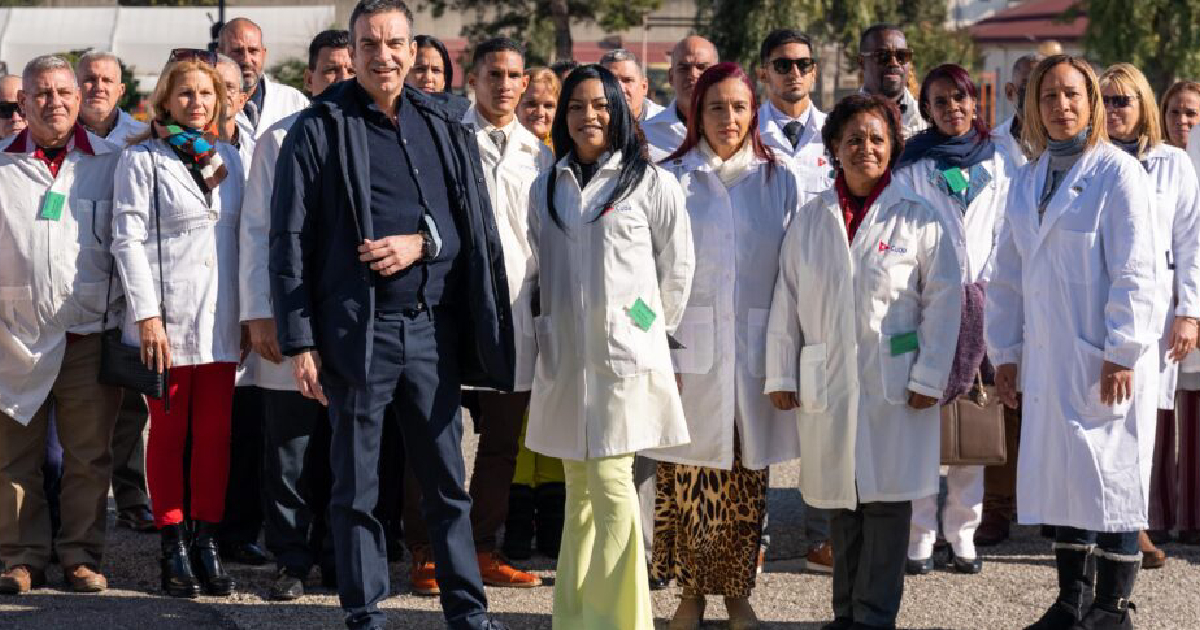Another 70 Cuban doctors are being dispatched to the Calabria region in southern Italy, even as Cuba's own healthcare system faces severe shortages of personnel and resources, along with a continuous deterioration of its infrastructure and patient trust.
The group of physicians includes specialists in emergency care, gynecology, orthopedics, radiology, cardiology, and pediatrics. They will join the existing brigade of 274 professionals already serving in that part of Europe, according to a statement published in the Gazzetta del Sud.
Context of the Agreement
This agreement occurs against a backdrop of a gradual reduction in healthcare staff, largely due to migration and economic hardships. In 2022, the National Office of Statistics and Information (ONEI) reported 12,065 fewer doctors compared to 2021, a troubling trend.
Despite being labeled as "forced labor" by the Office of the United Nations High Commissioner for Human Rights, Cuban medical missions continue to integrate professionals under the premise of "helping the most needy."
The coordinator of the brigade in Calabria, pediatrician Iván Martínez, highlighted the leadership of Fidel Castro and his focus on "training specialists in various sectors, including medicine, to assist Third World countries." In an interview with the Italian newspaper on May 31, he mentioned that this request comes from "one of the most economically significant countries," which is currently facing a complex healthcare situation.
Challenges and Accusations
The Calabria government had "the courage to ask for support from those who always help with their doctors, and we naturally accepted. Although it wasn't easy at first, the Cuban doctors, with their skills, overcame all mistrust, and the experience has been extraordinary so far," Martínez asserted.
According to the Cuban state agency Prensa Latina, the first group of 51 doctors arrived in Italy shortly after signing a framework agreement in August 2022. This was followed by 120 more in August 2023 and another 106 in January of the current year. The number is expected to rise to 500 in 2024, expanding services in 27 hospitals across the five Calabrian provinces: Catanzaro, Cosenza, Crotone, Reggio Calabria, and Vibo Valentia, the report notes.
The Calabria regional government faced formal accusations from the NGO Prisoners Defenders in December 2022, alleging human trafficking, slavery, persecution, and other inhumane acts against Cuban doctors. In response, Italy implemented a "fixed-term subordinate contract" instead of the previous freelance contract.
Other complaints filed with the United Nations and the International Criminal Court remained unaddressed, including the claim that the Cuban government retains 75% of the doctors' salaries, leaving them with less than 60% of Italy's average wage.
Frequently Asked Questions About Cuban Doctors in Italy
Here are some common questions and answers regarding the deployment of Cuban doctors to Italy and the implications for both countries' healthcare systems.
Why is Cuba sending doctors to Italy?
Cuba is sending doctors to Italy as part of an agreement to help alleviate Italy's healthcare challenges, despite facing severe shortages and issues in its own healthcare system.
What specialties are the Cuban doctors bringing to Italy?
The Cuban doctors being sent to Italy are specialists in emergency care, gynecology, orthopedics, radiology, cardiology, and pediatrics.
What are the main criticisms of Cuba's medical missions?
The main criticisms include allegations of "forced labor," human trafficking, slavery, and the Cuban government's retention of a significant portion of the doctors' salaries.
How has Italy responded to these criticisms?
Italy has responded by implementing a "fixed-term subordinate contract" for the Cuban doctors, replacing the previous freelance contract to address concerns about labor conditions.
